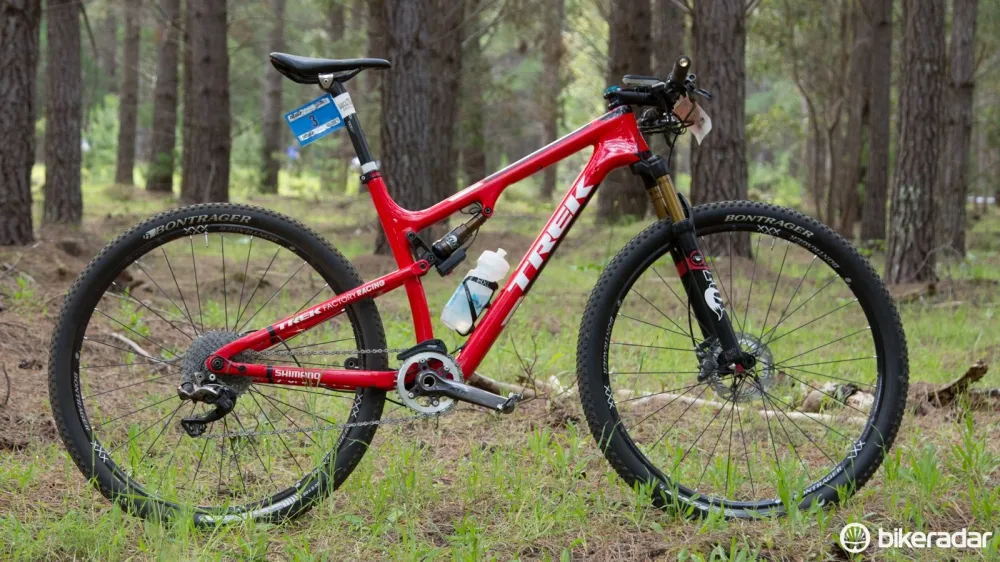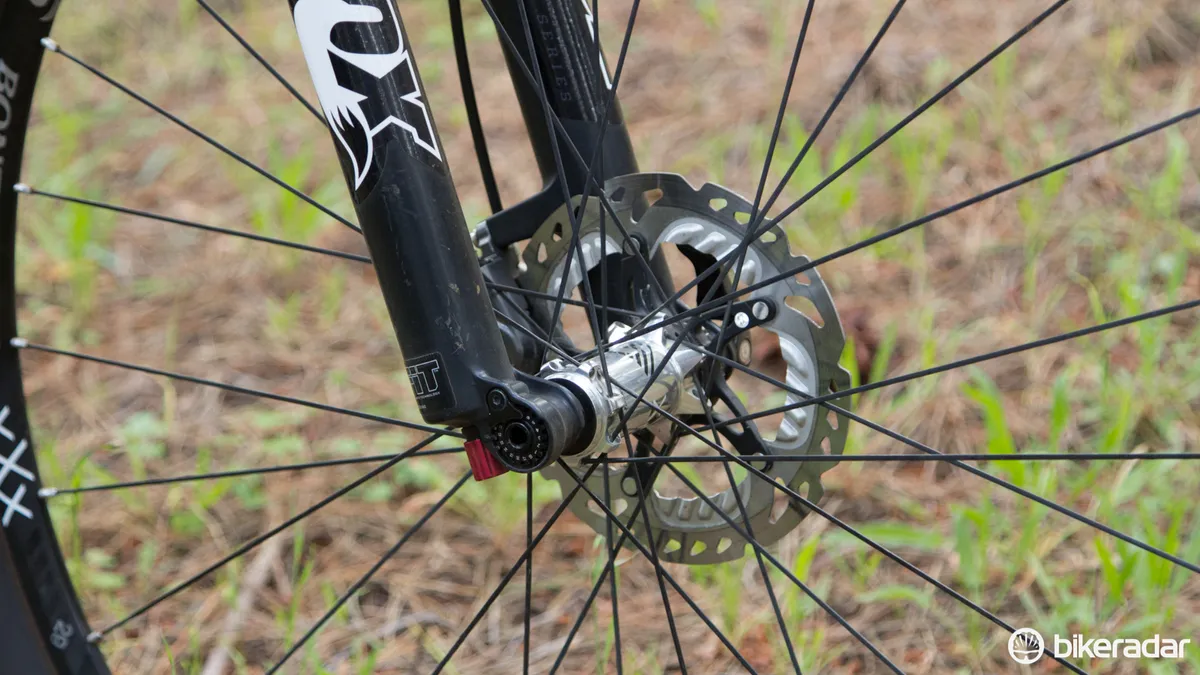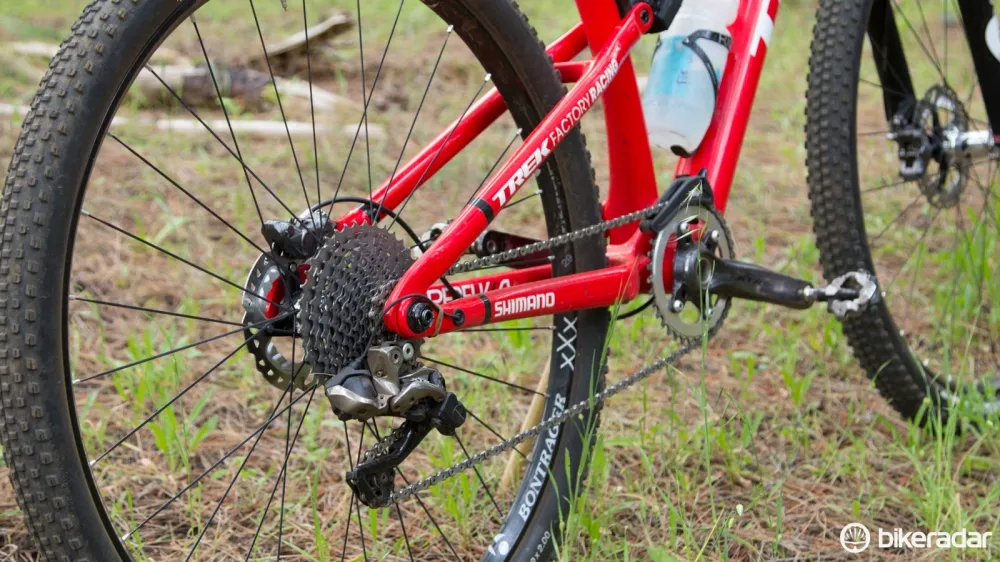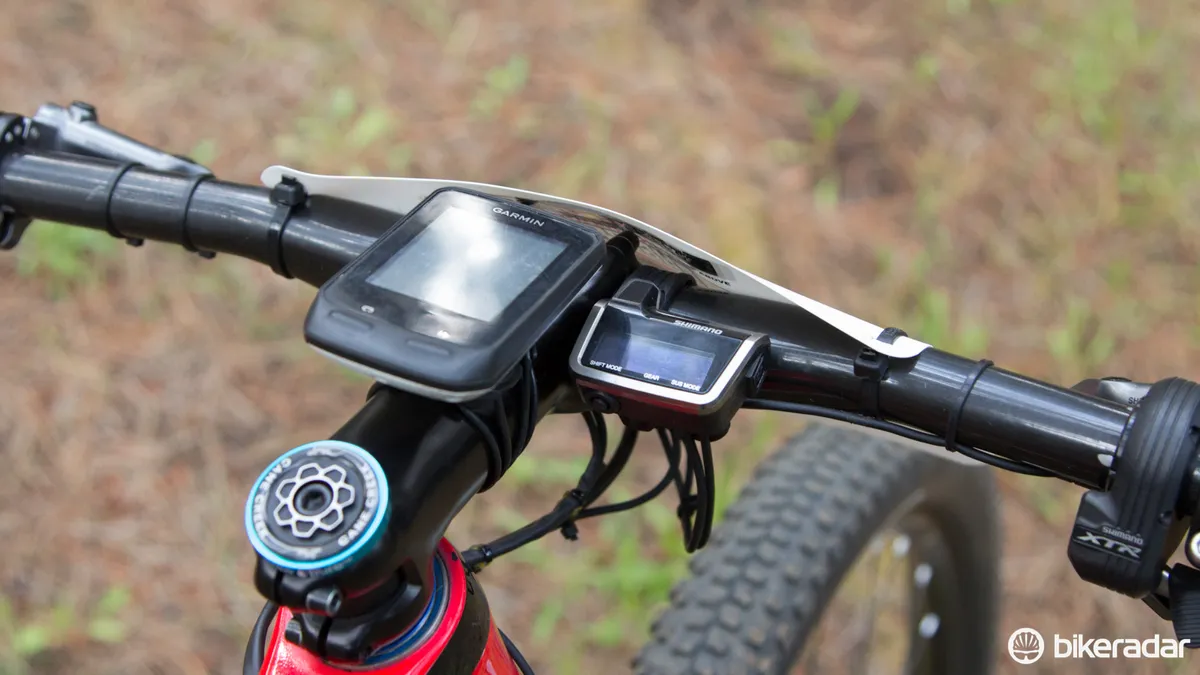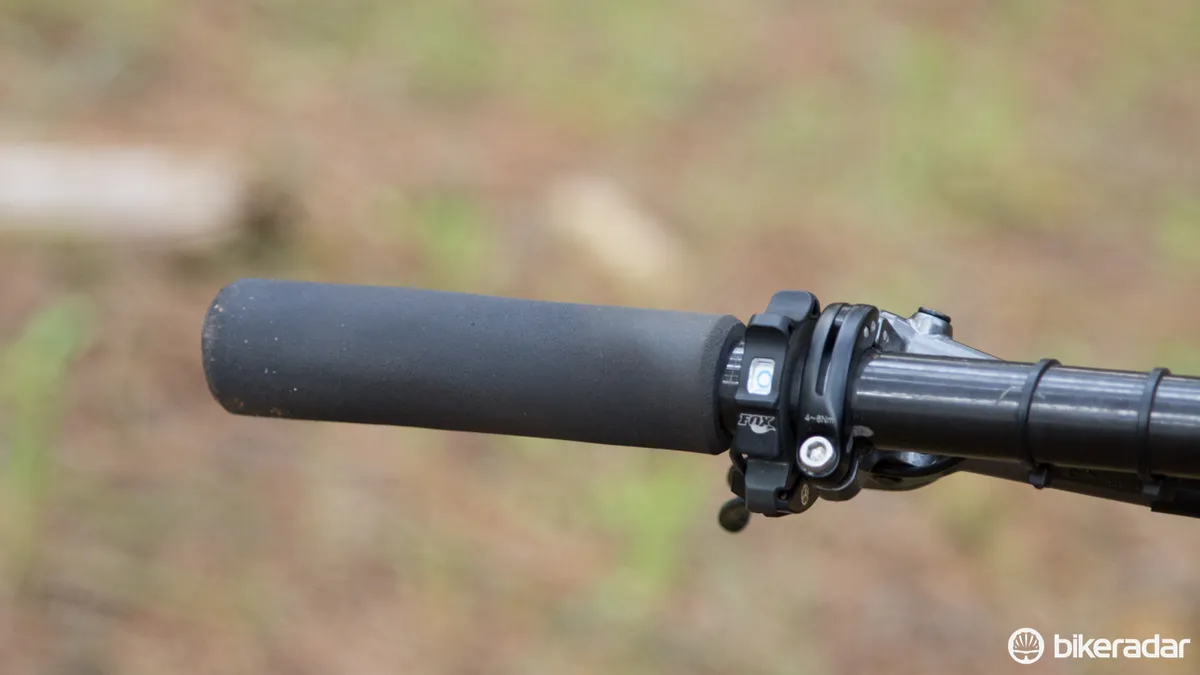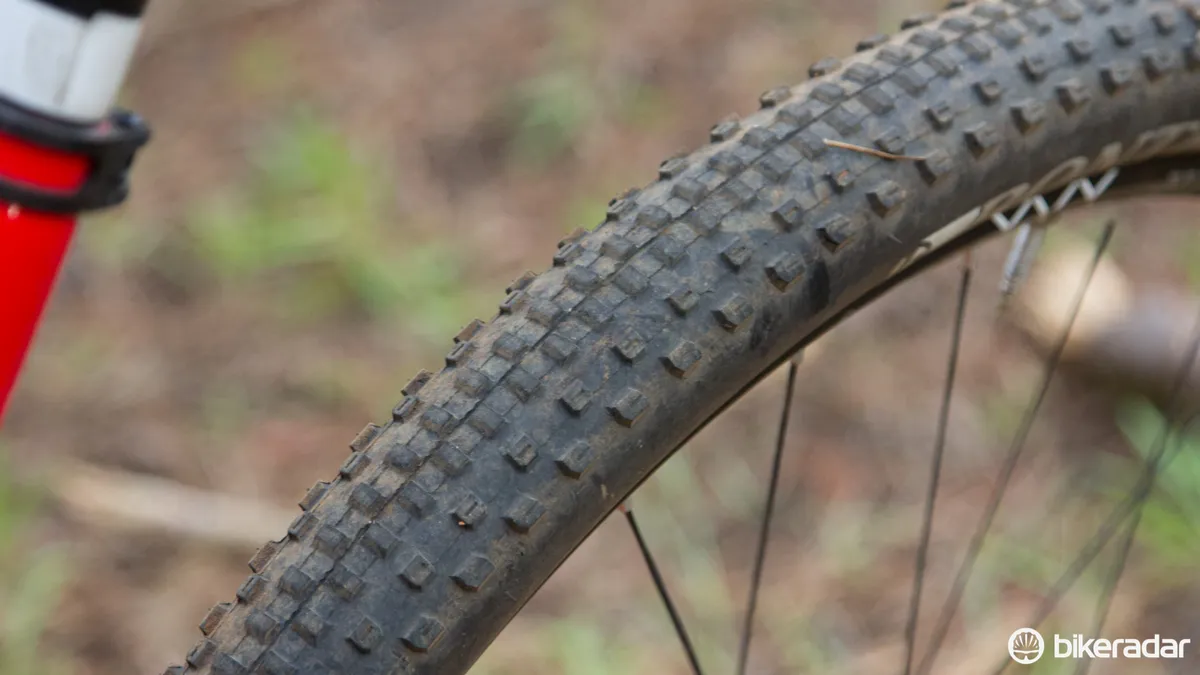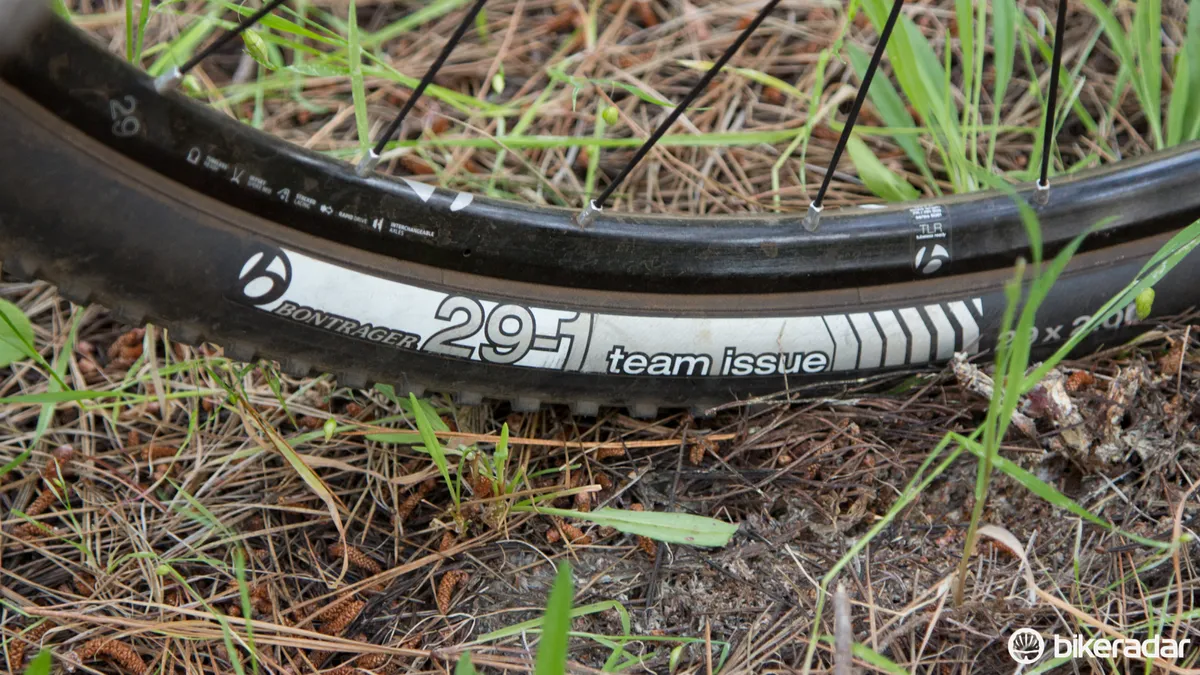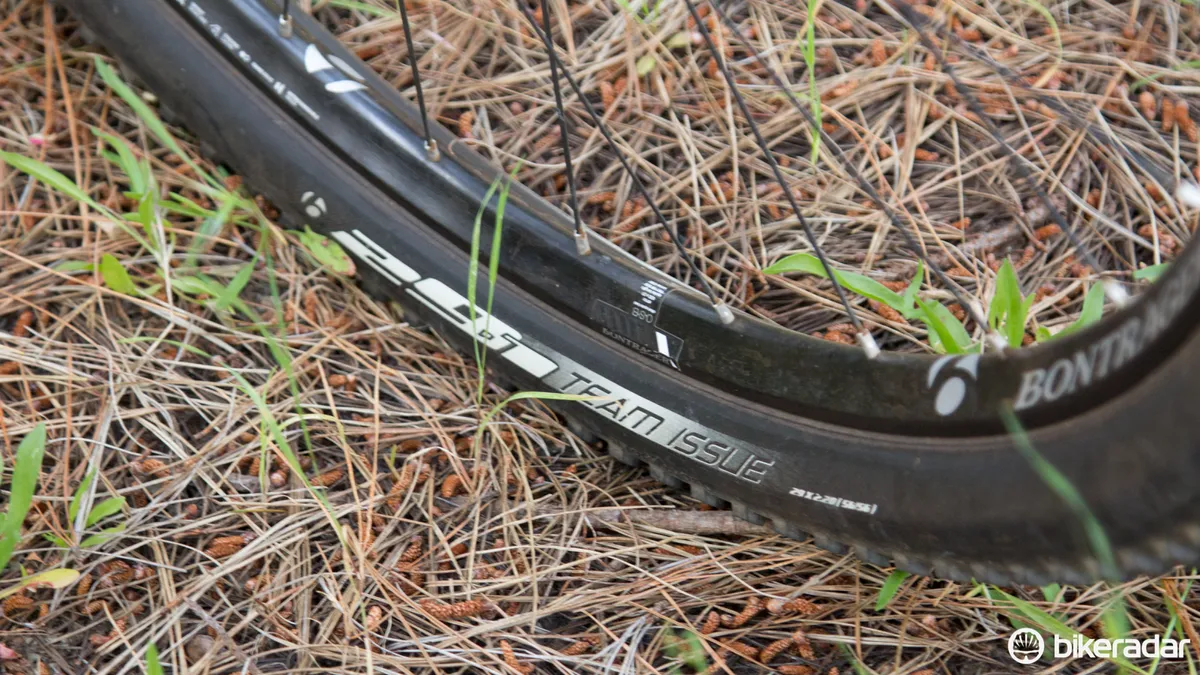Dan McConnell, the Australian two-time Olympian was a relatively unknown rider before shooting to global recognition in 2013 with his first cross country World Cup win at Albstadt, Germany.
It was his debut world cup race with the Trek Factory Racing, a team that has since seen him finish second and third overall in the respective 2013 and 2014 World Cups. Just recently, McConnell was looking like a strong contender at the 2014 World Championships in Hafjell, Norway until two flats ended his day.
While racing at the Cape to Cape mountain bike race in Margaret River, Australia, BikeRadar caught up with Dan McConnell who was astride the very same bike he rode at the World Championships. With Shimano 11-speed XTR Di2 being released at the 2014 Albstadt, Germany World Cup, McConnell is one of just three riders globally to have been racing on the prototype groupset since.
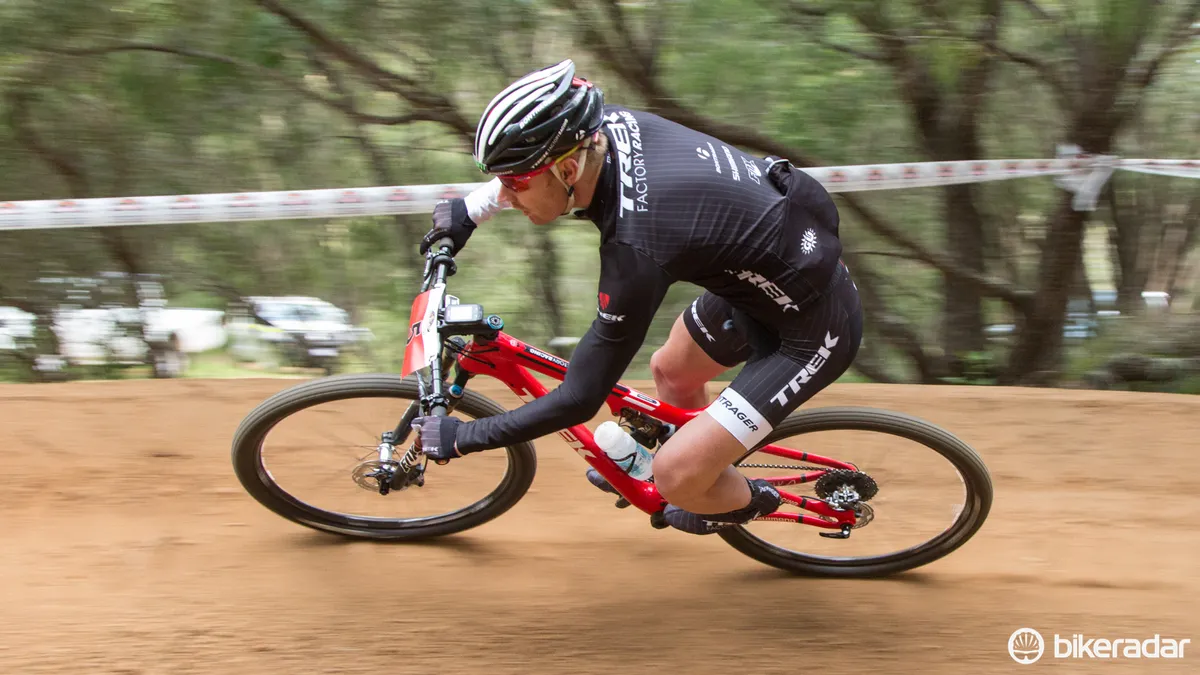
Dan McConnell speeding through one of the many berms that made up the Cape to Cape's RedBull Showdown course
Despite the system featuring Synchro shift, which enables sequential front and rear shifting off a single shifter, McConnell’s ride is set up in a simpler 1x11 configuration – a common choice among the world’s fastest.
McConnell told BikeRadar: “I was given the choice on if I wanted Di2, and now having put some serious time with it I don’t think I’ll be going back [to mechanical]."
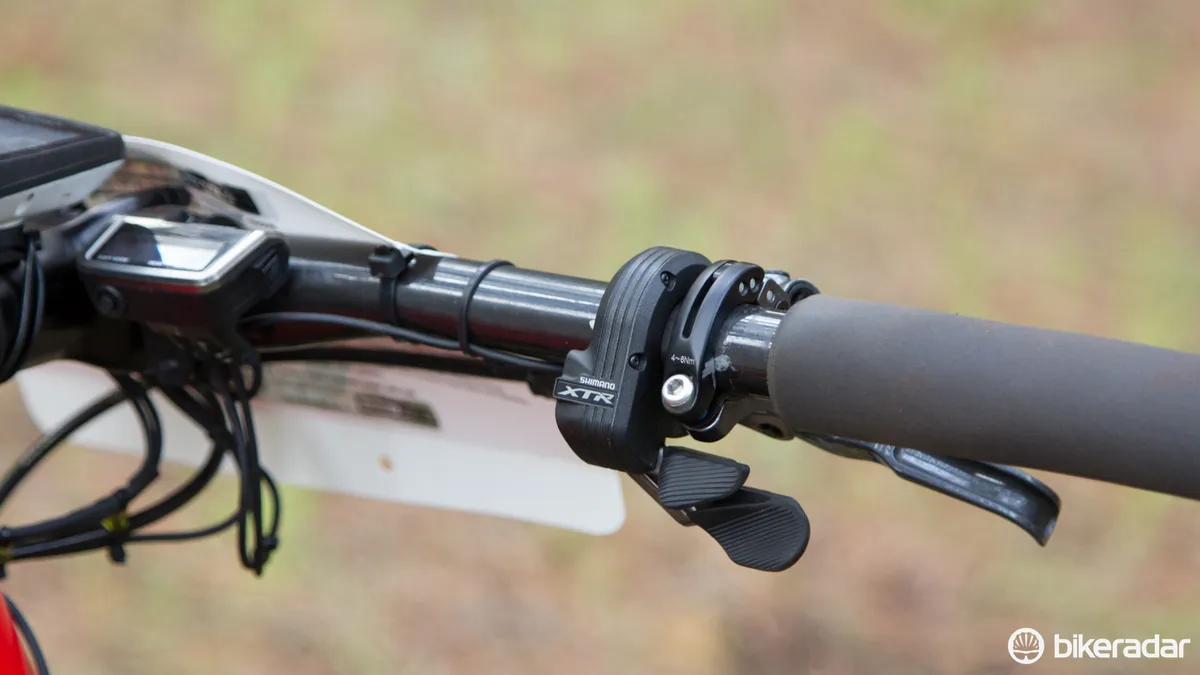
Ignoring the obvious price factor, Di2 makes a lot of sense on a mountain bike and McConnell is one of the lucky few to have been riding it for much of the season
Having been proven reliable on the road, the XTR Di2 comes with huge potential for when every second counts. Once set up, heavy mud and extreme dust should have no effect on shifting, with a bent rear hanger being just about the only thing to upset the system. A far lighter shift effort is another bonus for those pushing their bodies to the limit.
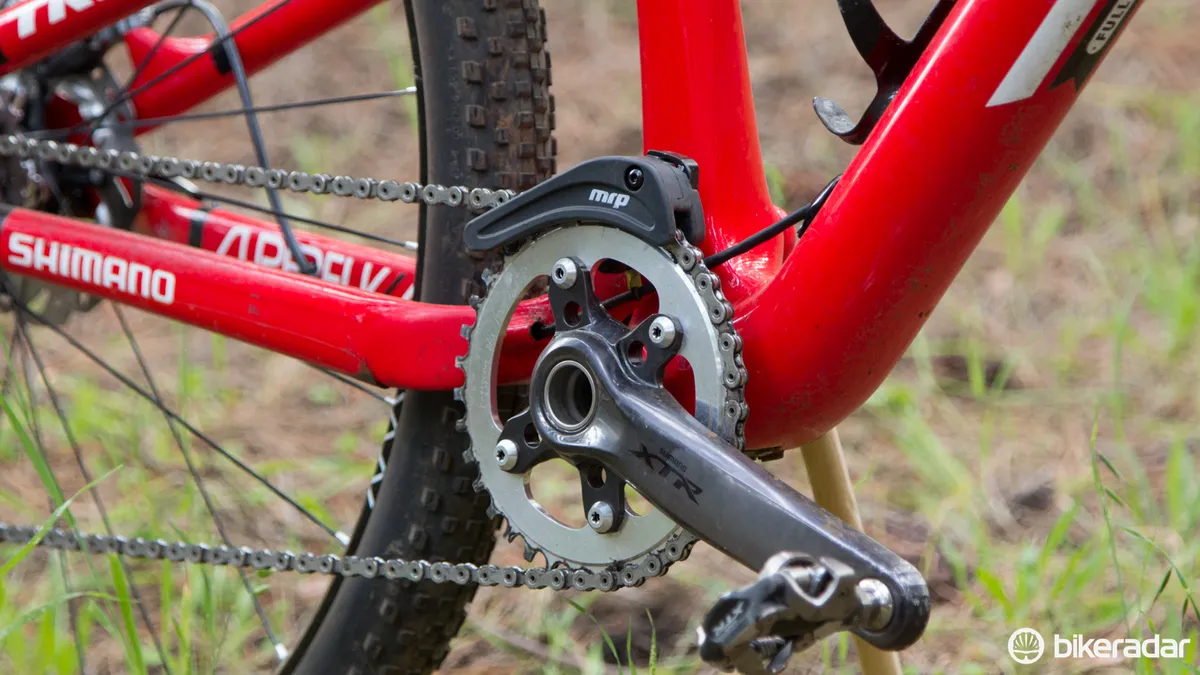
Despite 1x11 systems offering chain retention features, most pro riders don't take any chances and still use a top chainguide
The M9050 XTR rear derailleur features a clutch system for better chain retention but – like many other pros – McConnell takes no chances and uses a lightweight MRP 1X chainguide to ensure a chain is never dropped from the prototype 36T single chainring.
World Cup riders often choose a hardtail for absolute acceleration and light weight, but the world champs course in Hafjell Norway saw many riders, including winner Julien Absalon, take the weight penalty of dual suspension.
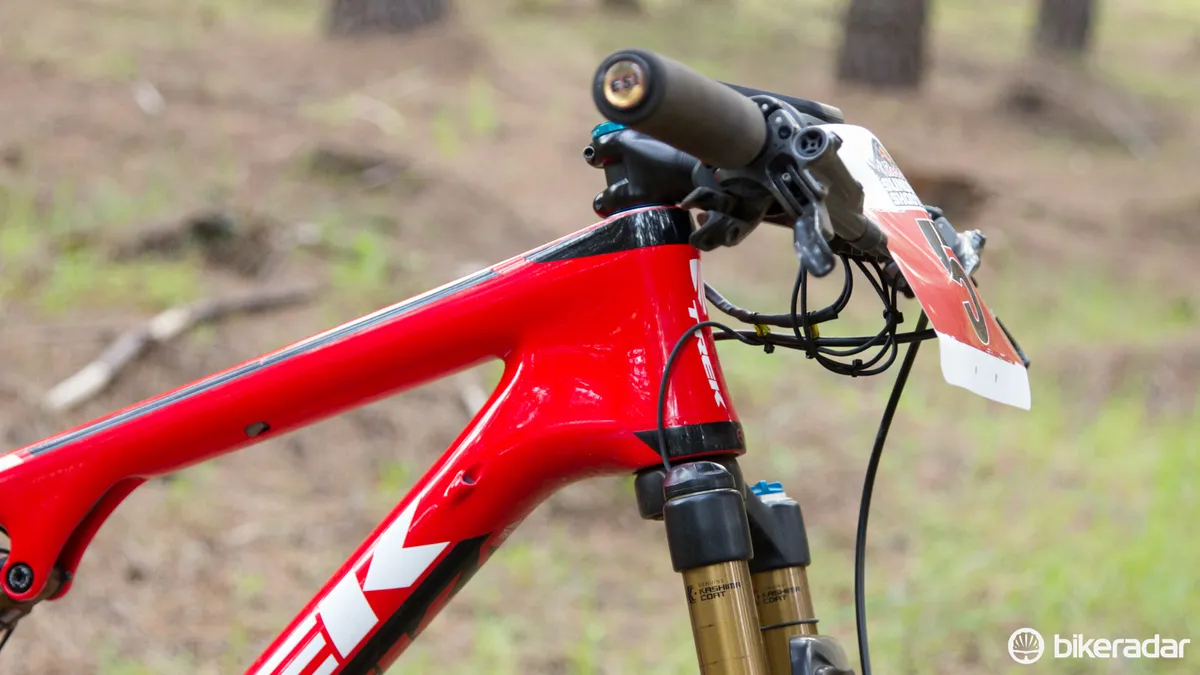
Spare cable port shows this isn't a Di2 specific frame
McConnell rides a stock Superfly FS 9.9 SL frame – the pinnacle of Trek’s race line-up and still made in the USA – in a large (19in). The frame isn’t specifically designed for use with Di2, as evident by the unused cable port at the head tube, but the mechanics have done well to internally wire the frame.
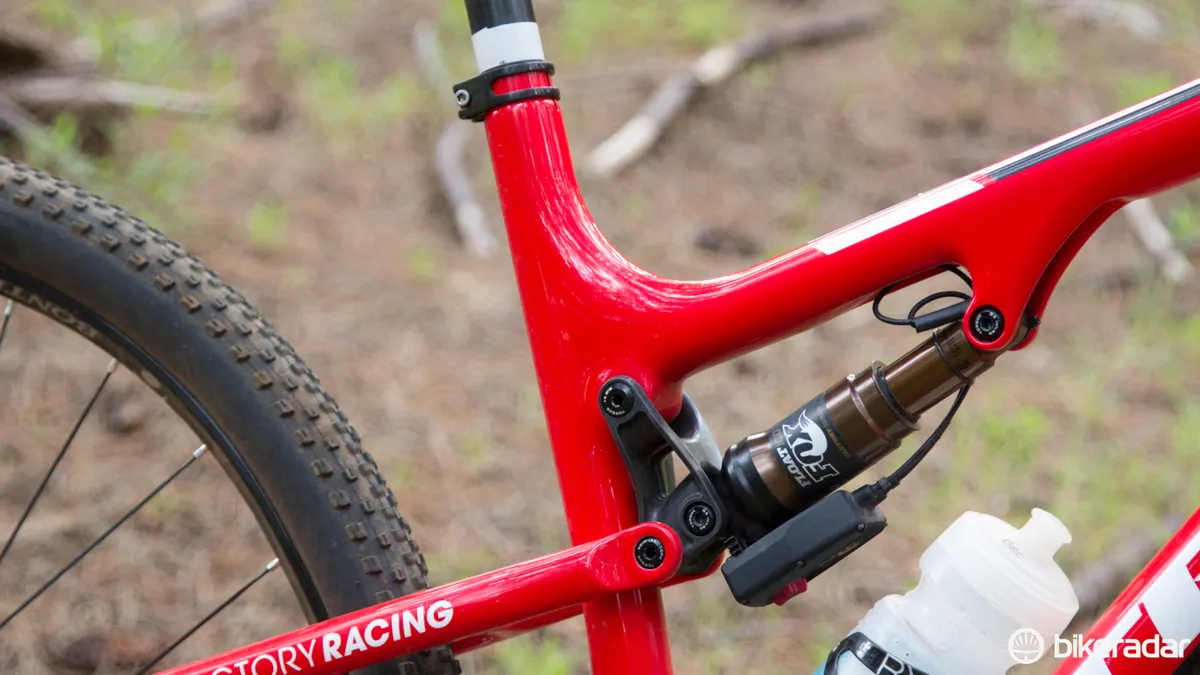
The iCD rear shock carries an approximate 80g weight penalty compared with a standard model, but this is likely recouped via lighter switches and wires
Seen slightly more often than the Di2 gearing – and sharing an internal battery with it – is the Superfly's electronic suspension in the form of Fox iCD. This allows the lockout of both front and rear shocks to be adjusted easily via a single electronic switch on the handlebar.
As McConnell is riding without a front derailleur, the suspension control sits in place of his left shifter, and just like the shifting, little effort is required to to actuate the system.
The iCD suspension still comes with a small weight penalty over simple mechanical systems, but given the shared battery and wiring with the gearing, we suspect the overall system weight to be rather competitive.
While most of the components outside of the suspension and gearing are from Trek-owned Bontrager, McConnell’s low and aggressive position calls for a negative 25-degree stem, something that isn’t currently within sponsor offerings in an appropriately lightweight option.
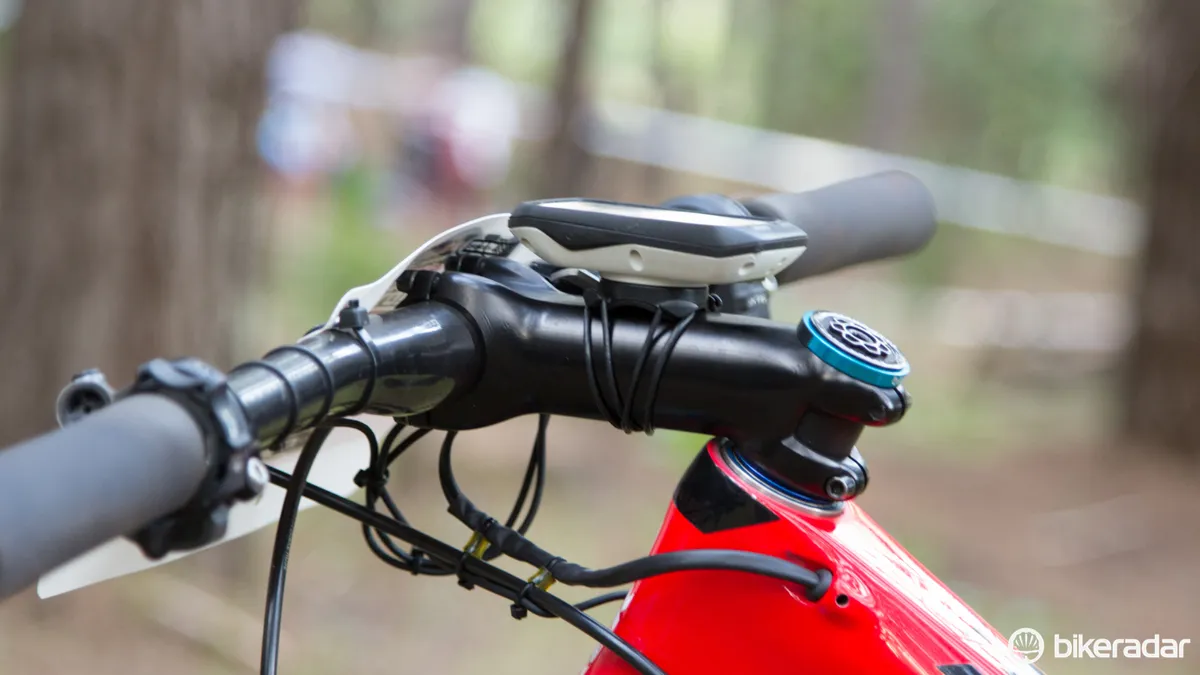
Getting low means no headset topcap for McConnell
If the hugely slopped stem wasn’t enough, McConnell does without a headset top cap in order to get his handlebar height even lower. Going to extremes like this is a regular sight among the best XC racers who ride 29ers.
Keeping the Aussie rolling is a pair of 29in, 1,440g (claimed) Bontrager XXX Disc TLR wheels. These tubeless-ready hoops use an asymmetrical alloy rim and oversized hubs with DT Swiss internals that make use of the bike’s front and back thru-axles.
Bontrager XR-1 Team Issue rubber sheathes those wheels, with a 2.2in on the front and a narrower 2.0in at the back. We’ve seen the Trek Factory Racing team experimenting with various prototype tyres during the season, but the general dry conditions of the Cape to Cape race were well suited for a fast rolling design such as the XR-1.
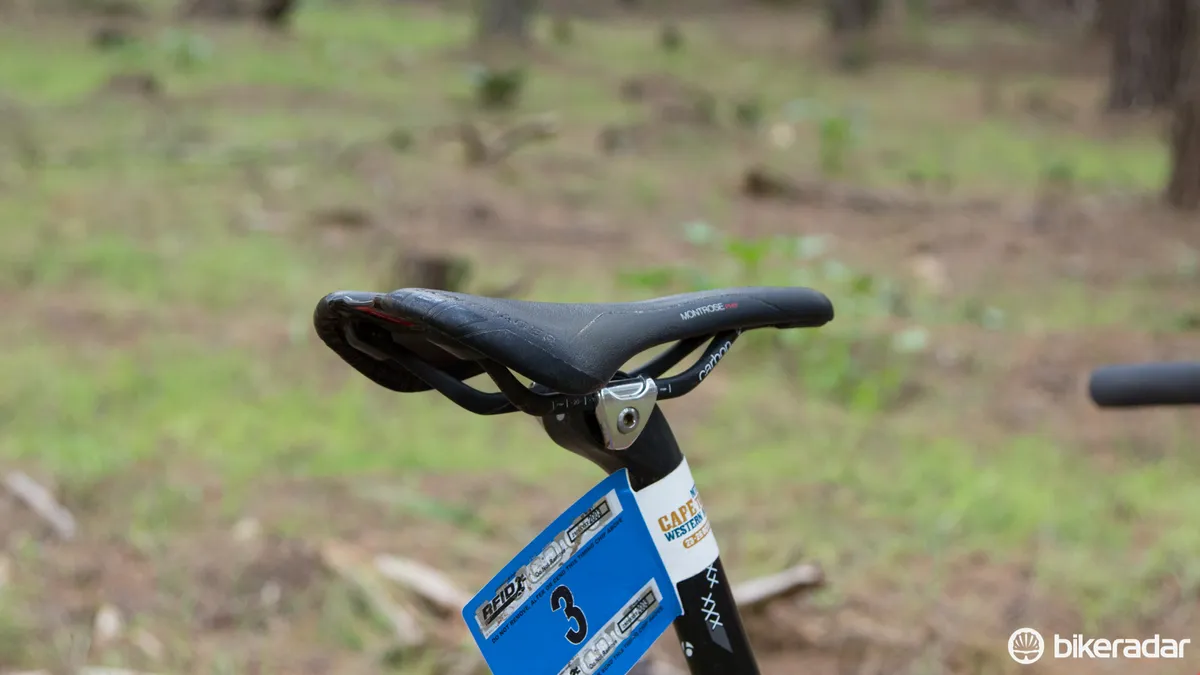
Released for 2015, the Bontrager Montrose Pro is McConnell's choice
Bontrager’s new mountain-specific Montrose Pro saddle provides a perch for McConnell, with carbon rails keeping weight down. Unfortunately among all the racing we didn’t actually get a chance to weigh the machine, but McConnell told us his race setup comes in at 9.9kg (potentially different tyres and no Garmin).
Complete bike specification
- Frame: Trek Superfly FS 9.9 SL (Large 19in)
- Rear shock: Fox Float iCD Kashima
- Fork: Fox 32 Float 29 100 FIT iCD G2 Geometry
- Headset: CaneCreek sealed, no topcap
- Stem: Unbranded alloy, 120mm -25 degree
- Handlebar: Bontragerv XXX flat 690mm
- Grips: ESI Racers Edge
- Front brake: Shimano XTR M9000, 160mm Freeza centerlock rotor
- Rear brake: Shimano XTR M9000, 160mm Freeza centerlock rotor
- Brake levers: Shimano XTR M9000
- Chain guide: MRP 1X top guide
- Rear derailleur: Shimano XTR M9050, medium cage
- Shift levers: Shimano XTR M9050, right only
- Cassette: Shimano XTR M9000 11-40T 11-speed
- Chain: Shimano M9000 11-speed
- Crankset: Shimano XTR M9000 175mm, 36T prototype chainring
- Bottom bracket: BB-95 press-fit
- Pedals: Shimano XTR PD-M980
- Wheelset: Bontrager XXX Disc TLR 29, 15mm front, 142 x 12mm rear
- Front tyre: Bontrager XR-1 29 x 2.2in Team Issue
- Rear tyre: Bontrager XR-1 29 x 2.0in Team Issue
- Saddle: Bontrager Montrose Pro carbon
- Seatpost: Bontrager XXX straight
- Bottle cages: Bontrager RXL
- Other accessories: Garmin Edge 510
Critical measurements
- Rider's height: 1.8m (5ft 10in)
- Rider's weight: 68kg (149.6lb)
- Saddle height from BB, c-t: 755mm
- Saddle setback: 67mm
- Seat tube length (c-t): 483mm
- Head tube length: 125mm
- Top tube length (effective): 606mm
- Weight: 9.9kg (21.78lb, in race setup)
